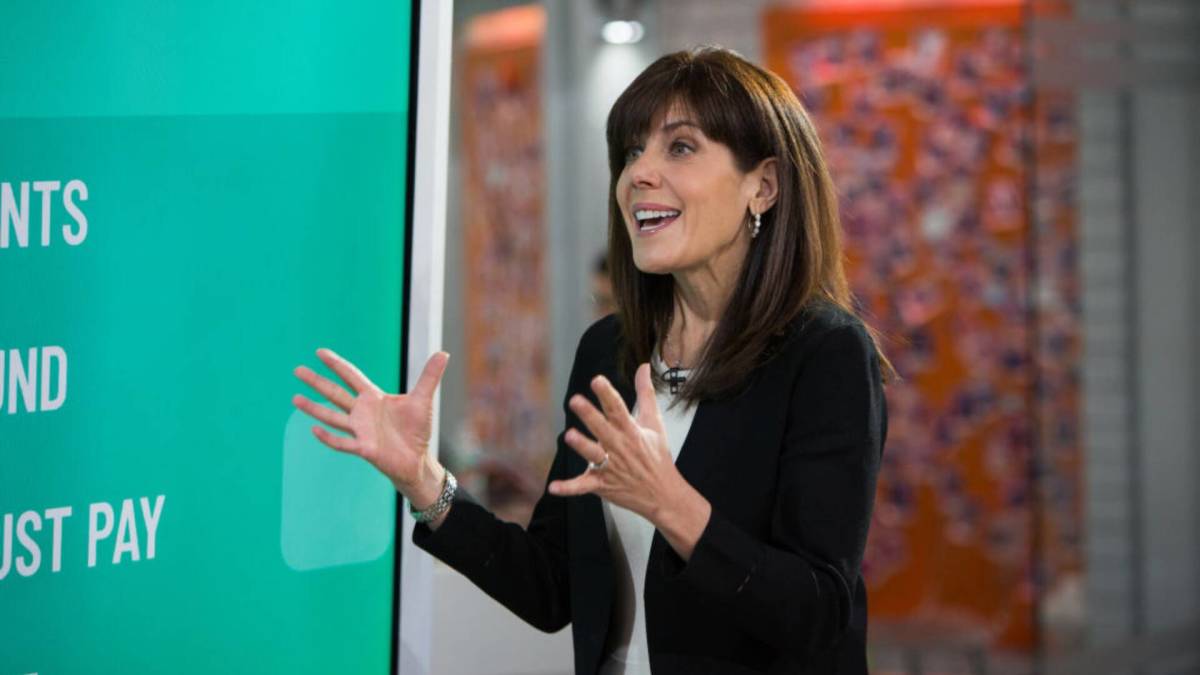As millions of Americans grapple with the affordability of everyday expenses such as housing payments, groceries, phone bills and transportation costs, many also struggle to save for their future retirement plans.
Jean Chatzky, the former NBC “Today Show” editor and founder of HerMoney, offers a warning on the future of Social Security, the federal program that supplements retirees’ incomes with monthly paychecks.
“If you’ve been reading the papers lately, you’ve probably seen words like shortfall, cuts, and insolvency splashed across the pages,” she said on a recent broadcast of the “Her Money with Jean Chatzky” podcast. “None of those are reassuring, especially if you’re approaching retirement, or simply hoping that Social Security will be there when your time comes.”
Related: Scott Galloway has bold words for Americans on Social Security
Chatzky welcomed Washington Post personal finance writer Michelle Singletary to help explain the urgency of Social Security solvency and what it means for Americans who are already retired — and those who are preparing for the life change.
Jean Chatzky tackles the vital question of Social Security solvency
Chatzky approached the Social Security solvency issue with a quick recap of generally understood facts about the future of the program based on a 2025 report from the Social Security Administration.
“It suggests that the shortfall could be coming for the trust fund sooner than expected in the next decade or so,” Chatzky said. “The year that I keep seeing splashed about is 2033. What does it actually mean for people who in retirement or are near retirement?”
Singletary explained her view on Social Security solvency.
Basically what they are forecasting if nothing changes, everything stays the same as it is, that when that shortfall happens — that’s what it is, a shortfall — that benefits could be cut anywhere from 20 to 25%. So whatever you’re getting if nothing changed, your benefits could be cut because they won’t have enough money coming in to pay everybody who’s receiving benefits. So your Social Security check … could be cut.
Singletary further clarified her outlook.
I don’t believe that they will allow that to happen. Can you imagine the chaos it would create across the country and just a lot of other people in addition to the people who are getting Social Security will be hurt. The markets will tank. It will be really pretty awful. And so what I think people should expect is that in the next several years, if not sooner, there will be changes in how benefits are calculated for people who will be coming into the system.

Image source: Congleton/NBCUniversal via Getty Images
Jean Chatzky explains current legislative action on Social Security
There is already a move in Congress to approach the Social Security solvency question, Chatzky said.
Senators Bill Cassidy and Tim Kaine are putting together a plan to help increase the funds for Social Security. Their idea is to invest $1.5 trillion over the next five years into an investment fund, give it 70 years to grow to then use it to help cover the shortfall. This is yet another take at privatizing Social Security, which was something that was talked about in the Bush administration.
More on personal finance:
- Dave Ramsey sends strong message on housing costs
- Scott Galloway sends strong message on retirement, Social Security
- Tony Robbins makes key statement on IRAs, 401(k)s
Singletary offered her take on the suggestion that privatization could have a role in Social Security’s future.
“I don’t think that’s a good idea. And I know that we are trying to get away from benefit programs for the American public,” she said. “That’s really what it is. And also, there’s a lot of lobbying from the financial services industry to get a hold of some of this money for their growth.”
Related: Tony Robbins sends warning message to Americans on IRAs, 401(k)s
“But we need a plan that is not subject to the craziness that can happen in the market at any period,” Singletary continued. “I mean, look at what happened during the pandemic, the great recession. Can you imagine if people are afraid now about Social Security?”
Singletary offers her views on inflation and recession fears
Singletary emphasizes that even modest inflation — around 2.5% to 3% — can deeply impact families living paycheck to paycheck. She warns of a possible recession, especially if trade tariffs remain unresolved.
Her advice centers around increasing savings now, before a crisis hits. That means trimming expenses. She said she has personally renegotiated bills such as insurance and satellite radio.
Singletary suggests building an emergency fund, ideally three months’ worth, or at least one. For high earners, she hopes people will aim for a year’s cushion, as job recovery can take more than 15 months.
She also expressed her views on mortgages as retirement nears.
“As you head into retirement, get rid of your largest debt on your books, and that’s your mortgage,” she said. “I’m a firm believer of going into retirement without a mortgage if you can.”
Related: Dave Ramsey has blunt words for Americans on Medicare, Medicaid
#Jean #Chatzky #warns #Americans #Social #Security